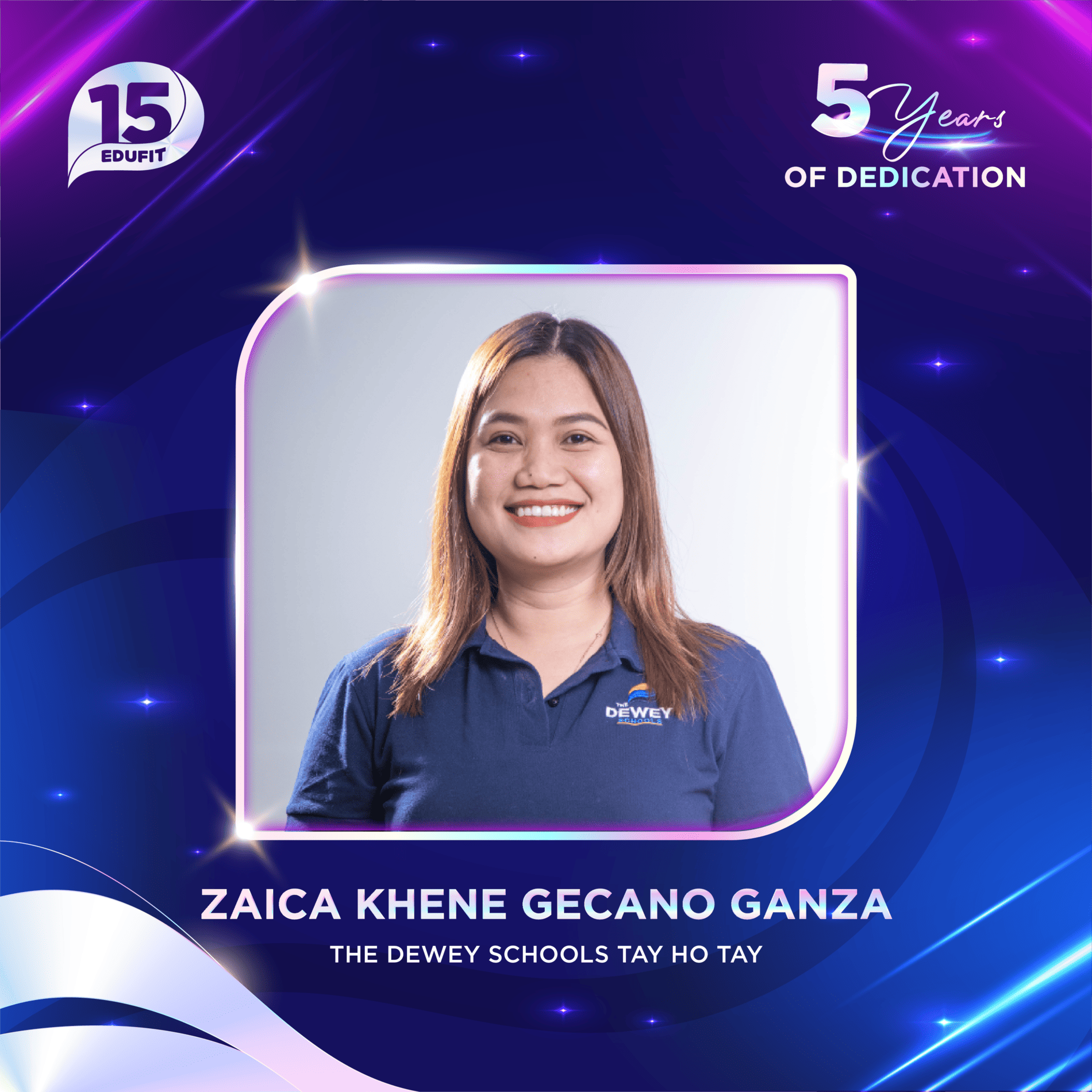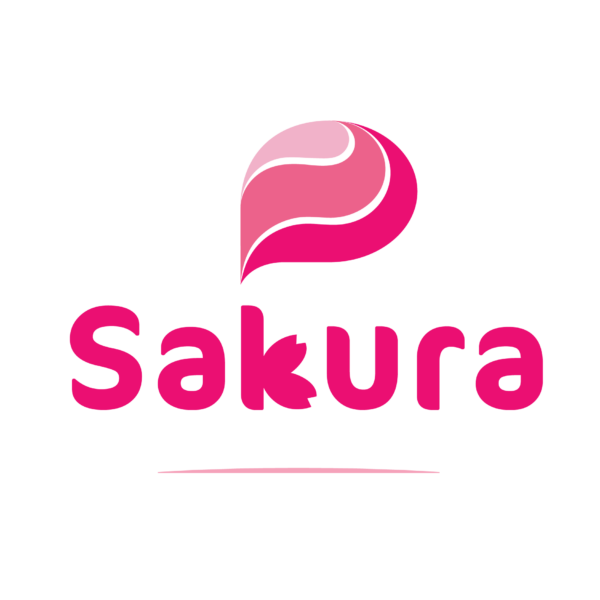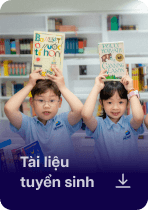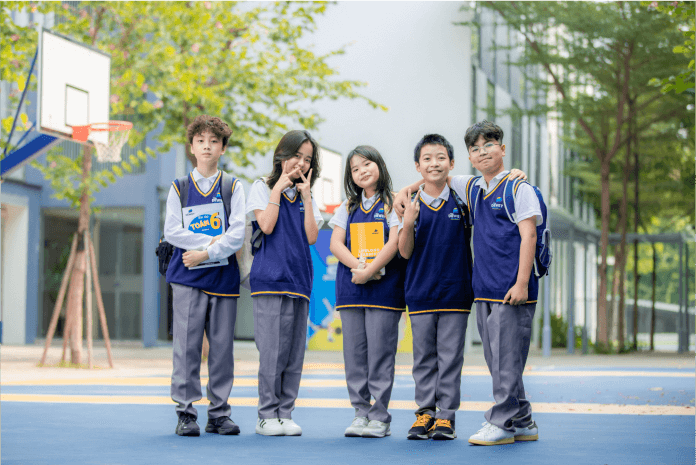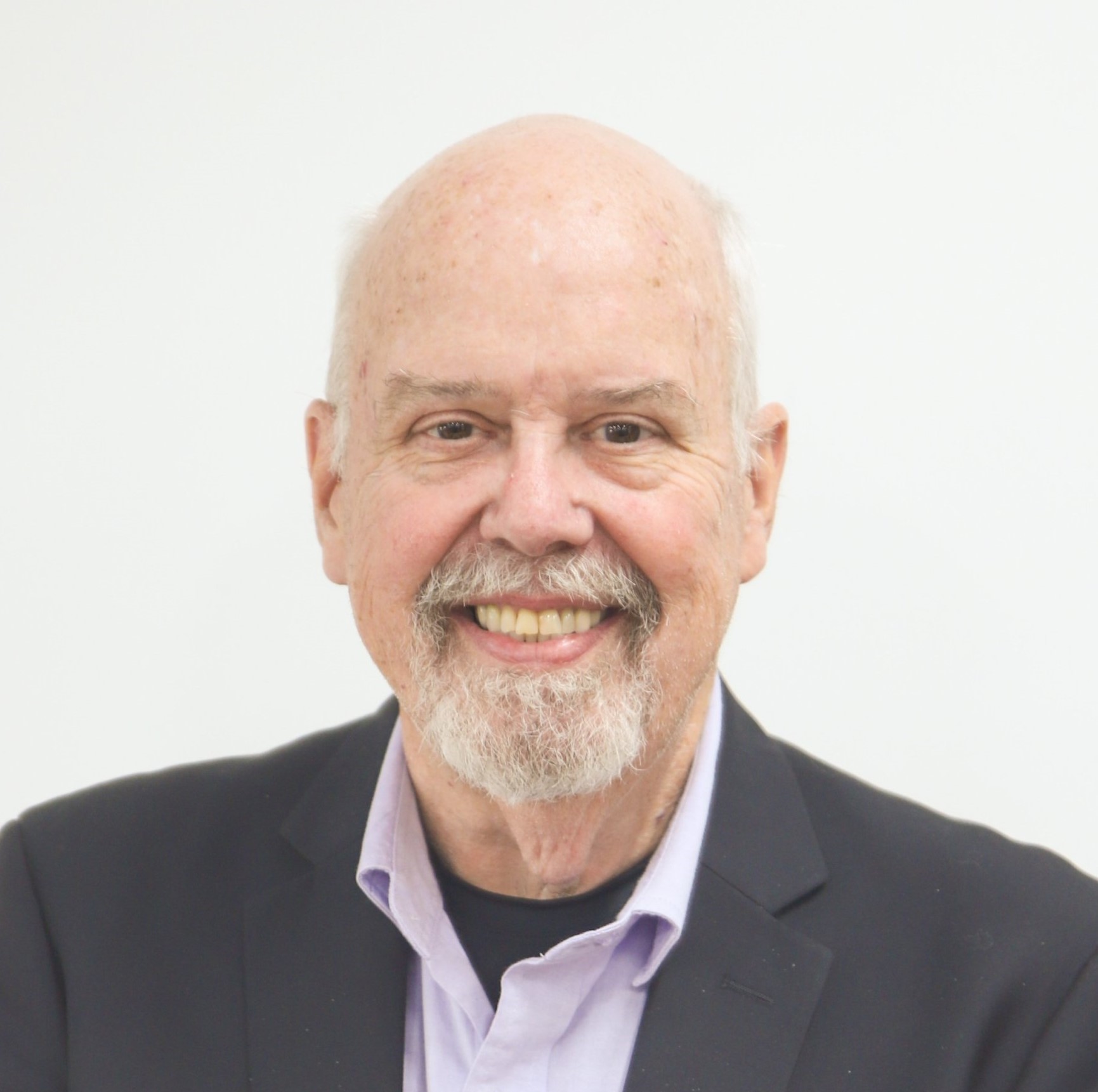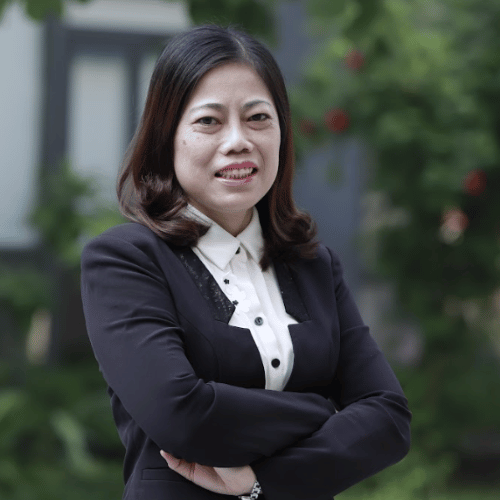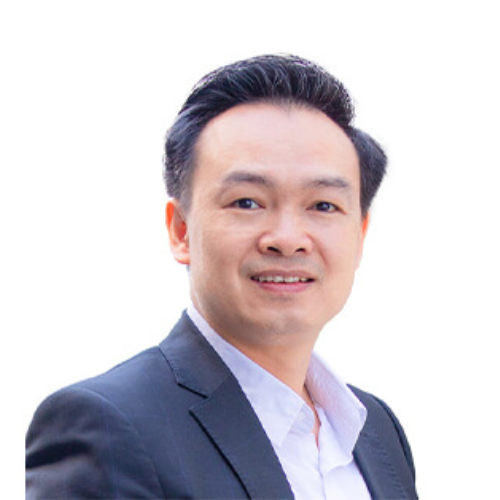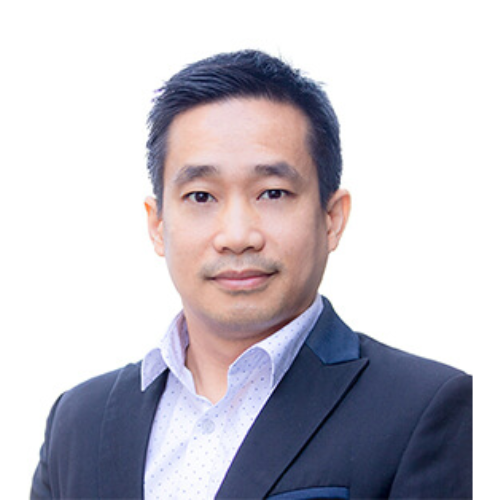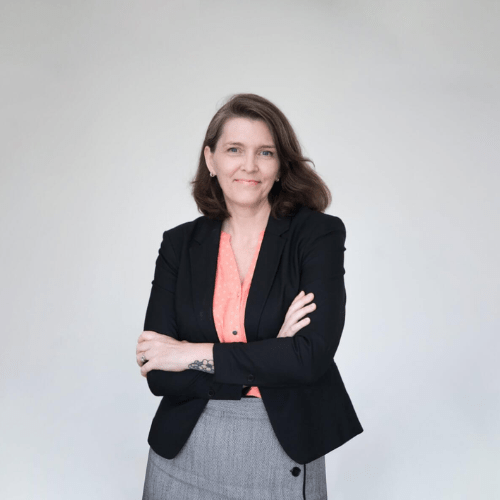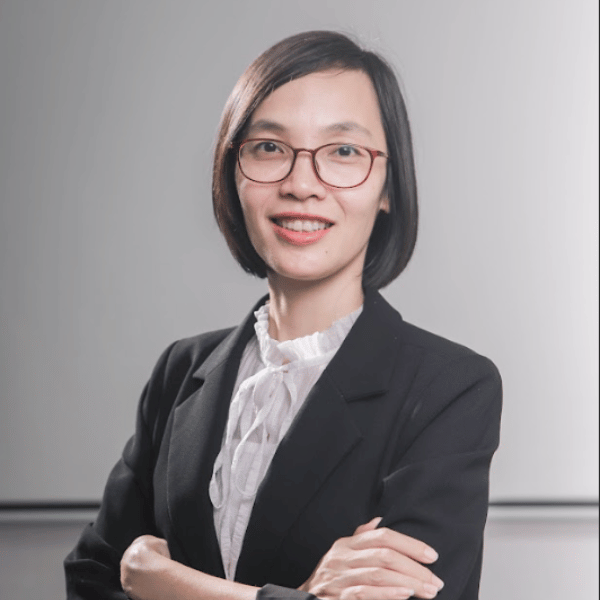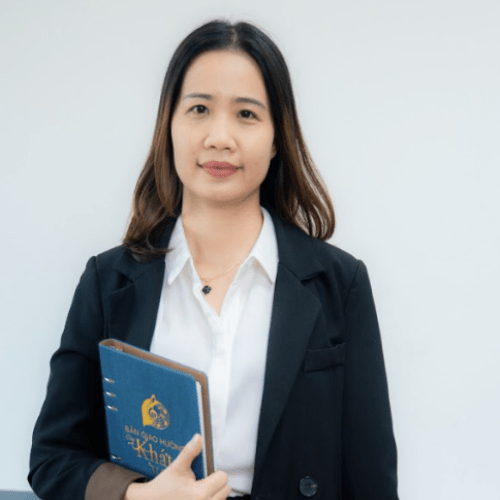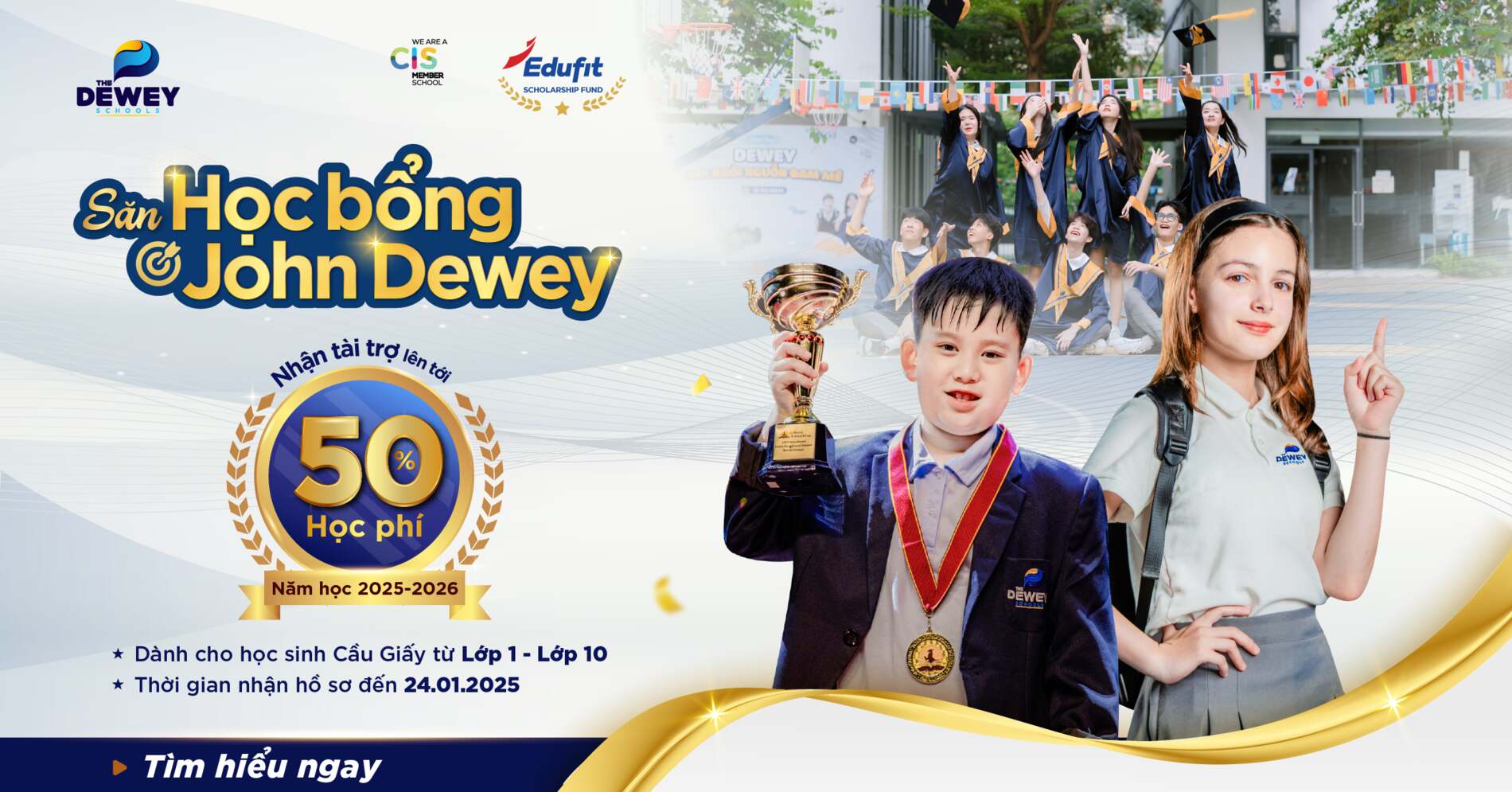Pursuing the educational philosophy of John Dewey, one of the most prominent educators of the 20th century, The Dewey Schools focus on integrating learning with real-world experiences to foster holistic development for students. The Dewey Schools believe that education is not merely the transmission of knowledge but a process of learning through experience. In the annual professional training courses for teachers at the school, the content on teaching methods through learning by doing is always considered the most engaging part of the training sessions. These sessions not only equip teachers with theoretical knowledge but also emphasize practical application, giving them the opportunity to experience and immediately apply what they have learned.
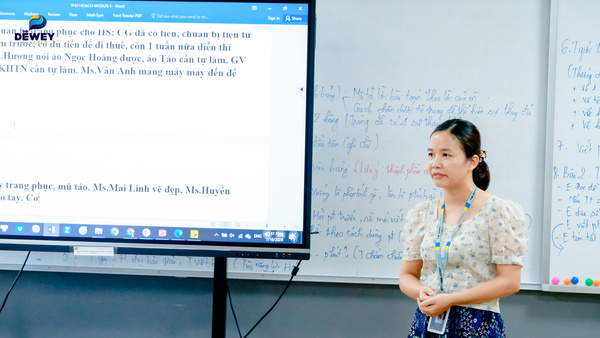
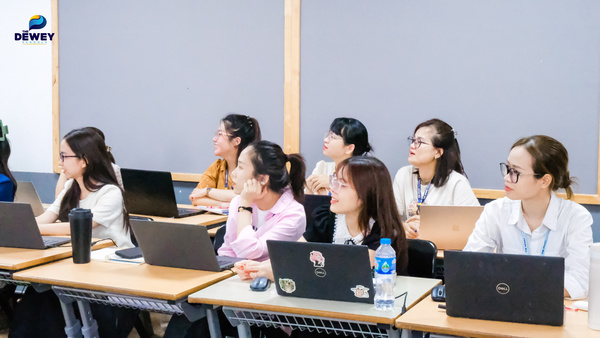
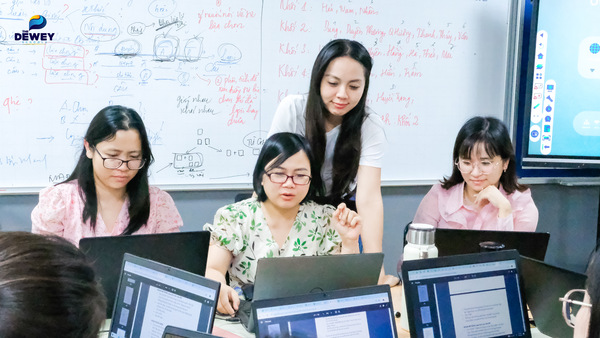
Training in learning by doing is a modern teaching method that emphasizes learning through practice and real-world experience. Instead of merely learning dry theories, students at Dewey are given the opportunity to participate in projects, experiments, and practical activities, which help them connect knowledge with reality, foster creative thinking, and develop problem-solving skills. To effectively implement this learning approach, teachers are regarded as crucial “catalysts” who guide and support students in mastering knowledge.
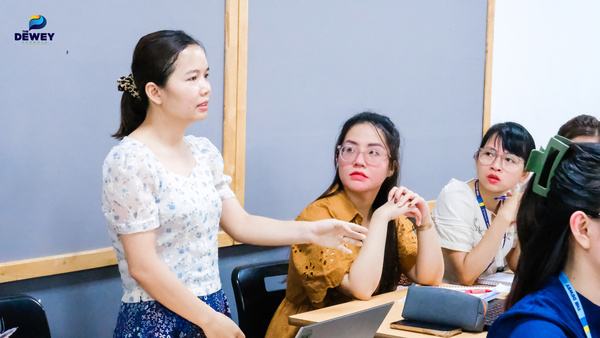
Besides mastering subject knowledge, teachers act as pioneers, continuously enhancing their practical skills through real-world teaching scenarios. They are also adept at capturing creativity and continuously improving and adapting their lessons. From the perspective of Mathematics, Ms. Nguyen Thi Luyen, Head of the Elementary Natural Science Department at the Ocean Park campus, shares: “At Dewey, when students learn Mathematics, they are made aware of the distinction between the process of doing mathematics and the process of calculation. Doing mathematics develops thinking, while calculation develops skills. Students learn the essence of the problem and concepts through the learning-by-doing method. Teachers guide students in creating their own concepts by retracing the paths that scientists have taken to discover these concepts. To effectively conduct a lesson using the learning-by-doing method, teachers must participate in all summer training courses and PD Day sessions, understand the program content, practice writing lesson plans, and ensure adherence to these plans during teaching. Additionally, teachers must be proficient in giving clear and concise instructions, ensuring they are unambiguous and easily understood. They should monitor each student’s actions and manage time effectively to ensure that the concepts students grasp are accurate and well-rounded.”
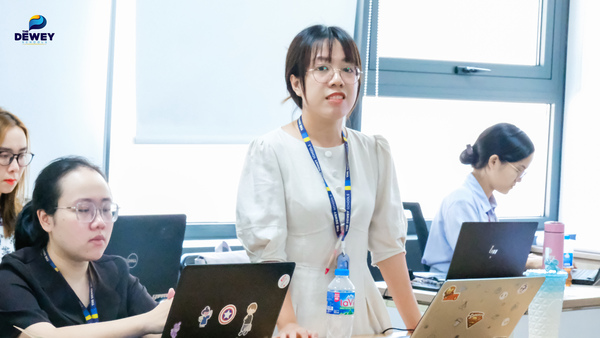
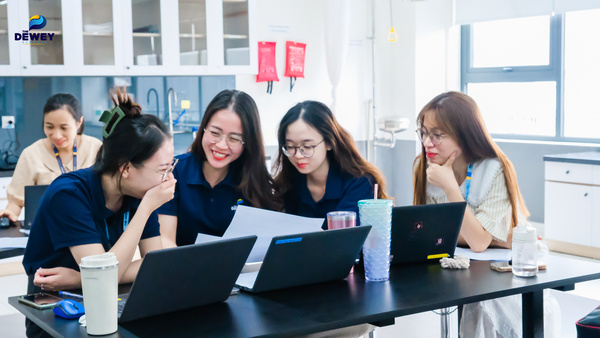
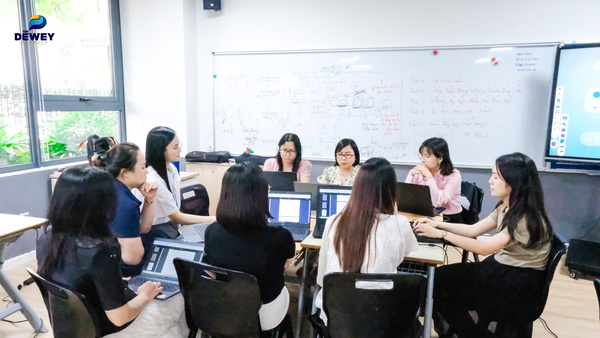
In addition to professional development content focusing on the teaching method of learning by doing, teachers at Dewey also participate in various other training topics, such as the application of AI technology in teaching, global citizenship, subject-specific training across all departments (Mathematics, Literature and Vietnamese, Science, Arts, etc.), and training on using SSM, among others. Regarding the topic “Practical Design of Teaching Activities,” Ms. Mai Xuan, a teacher from the Natural Science Department at The Dewey Schools Cau Giay, shared: “By applying knowledge of the lesson content as well as pedagogical and interdisciplinary skills, we have collaboratively discussed and grasped the changes in the curriculum to prepare adequately for the new school year. Additionally, participating in evaluations and feedback sessions using the Danielson Framework (Charlotte Danielson’s Framework for Teaching, which is applied in many countries worldwide), with its clear and transparent evaluation criteria, has helped me identify what I have done well, what needs improvement, and what I need to work on in the future.”
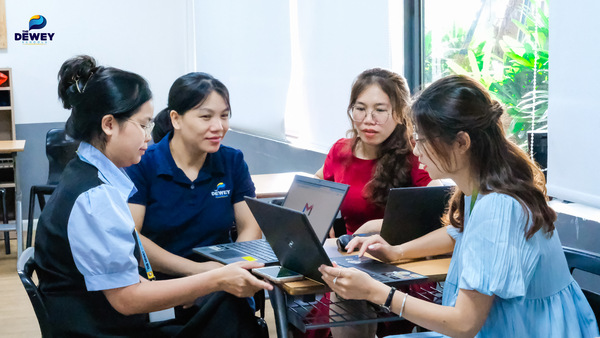
The Dewey Schools believe that these professional development courses have opened up many valuable opportunities for teachers to not only consolidate their knowledge and professional skills but also to enrich their teaching methods. Through active learning activities and practical experiences, teachers are equipped with the tools and strategies to be ready to apply in their classrooms, enhancing the quality of teaching and supporting students’ holistic development.



